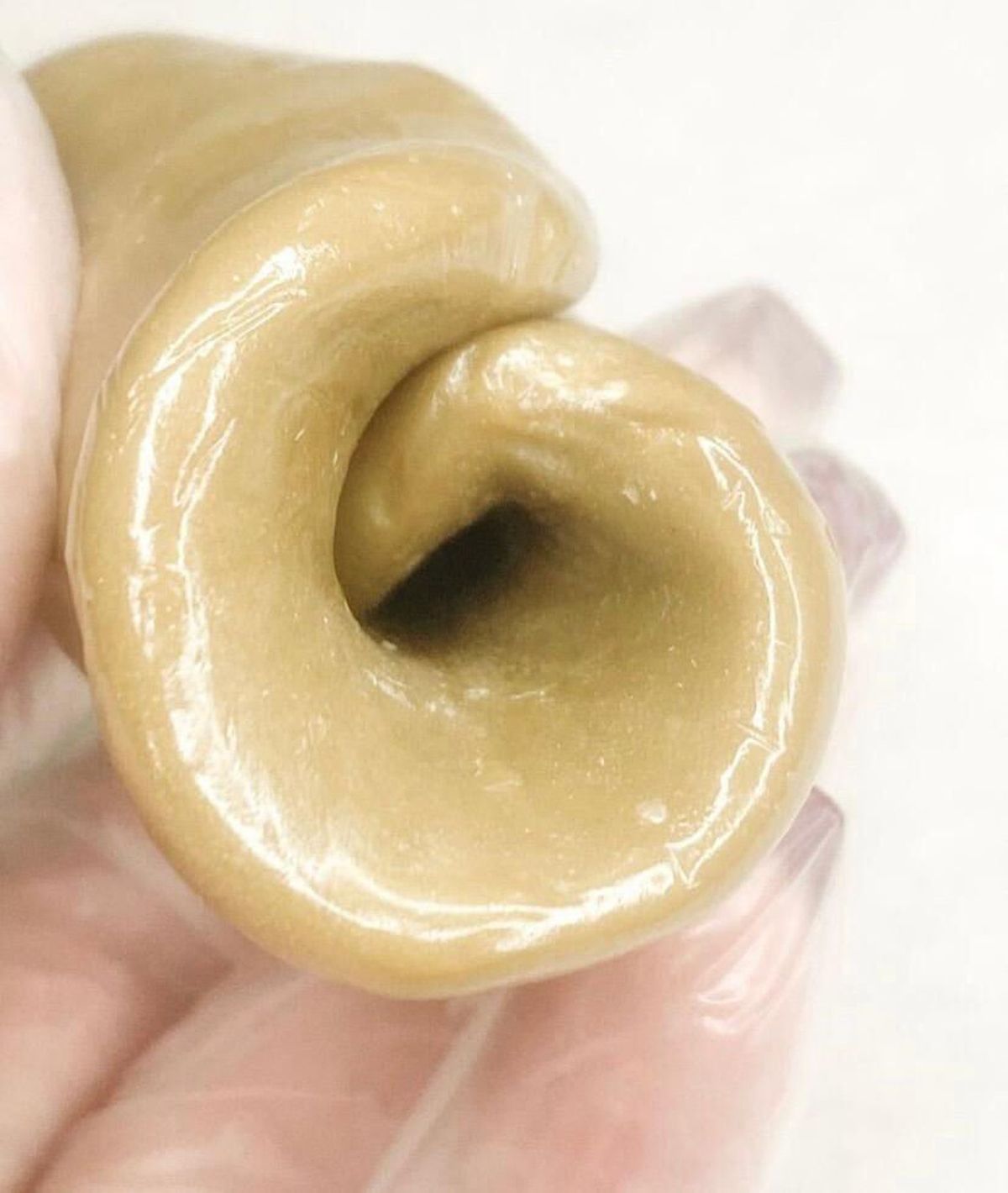Science enthusiast becomes expert in rosin concentrates

Clarice Taylor is an expert in creating rosin, a popular cannabis concentrate made under heat and pressure but not requiring solvents.
After mastering the process herself over the last five years, she now visits licensed cannabis farms around the state to help them build rosin labs and train employees.
“I’ve always been a huge science person – I can soak up any knowledge like a sponge and I never call any situation doomed since it can always be changed,” the 28-year-old Taylor said. “I like to use the term Delta symbolized by a triangle, meaning ‘to change something for the better.’”
Taylor started learning about rosin from online sources, then began making her own, starting with a hand straightener. This was followed by more videos, more research and talking with others in the industry through Instagram about their techniques.
She then upgraded to learn hands-on methods using a Sasquatch rosin press, a process she highly recommends.
Taylor’s cannabis journey began when she was hired as budtender. Soon after, she was asked to help build a producer/processing facility from the ground up.
She learned what every department did and needed, from trimming to extraction. She also had an opportunity to write the company’s Standard Operating Procedures for each division.
After learning everything at this facility, she felt ready for something bigger. She connected with Brandon Bond, a genetics consultant for In-House Genetics, through her Instagram account @XlariceMelts.
Working with Bond helped Taylor expand her knowledge base even more, and also provided the opportunity to start reaching out to farms around the state to educate them about genetics and other growing practices.
Currently, Taylor is able to select plant material from various farms to be processed into rosin. She runs three professional rosin presses plus three washers for In-House at P&R Processing, a Tier 2 producer/processor located in Woodinville.
“I am all about working with the ‘mom and pop’ grows,” she said. “That was the first thing that really caught my interest. I was taught by true OGs so I feel very confident in my skills in the industry.”
She’s passionate about teaching and hopes to offer a hash and rosin making class in the future, plus other classes for women in the cannabis business.
“It’s been extremely difficult to get into this industry as a woman,” she said. “People tend to not take me seriously. There are men in this industry that will say atrocious things to you, really bad things, and I am here to educate more woman – this is a job we can also do, and there’s plenty of cannabis for everyone.”
Beyond teaching people to make better rosin, In-House Genetics wants to improve education about plant genetics in other ways.
On Nov. 1, it initiated a global Pheno Hunt, which will involve selecting up to 10 growers worldwide to receive one type of specialty cannabis seed and grow it. The company will check in regularly to see how the exotic plant is growing.
The eventual goal of this project is to have growers in different states and countries show their progress. The knowledge gained will help the company learn more about factors and conditions that can influence growth such as weather, soil and climate. This data will hopefully be turned into best practices that can be shared with growers.
“We are here just to help home grows as well as the Washington’s industry,” Taylor said. “We want to help those that need the help get the correct genetics and make sure that everyone will has what they’re looking for.”